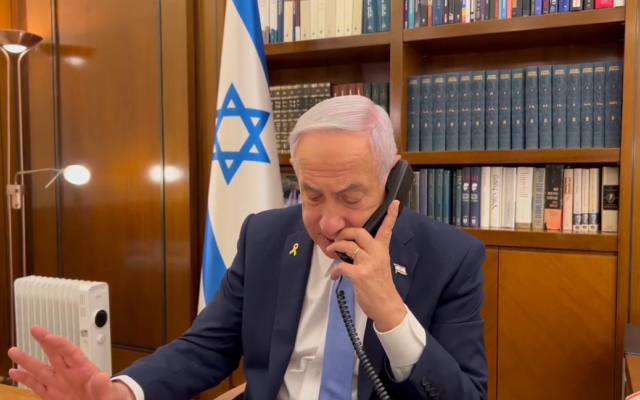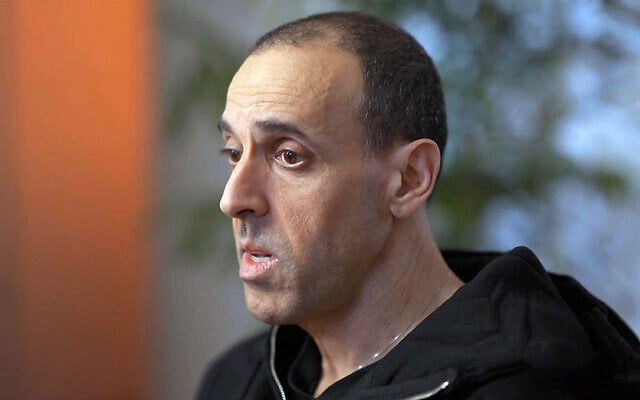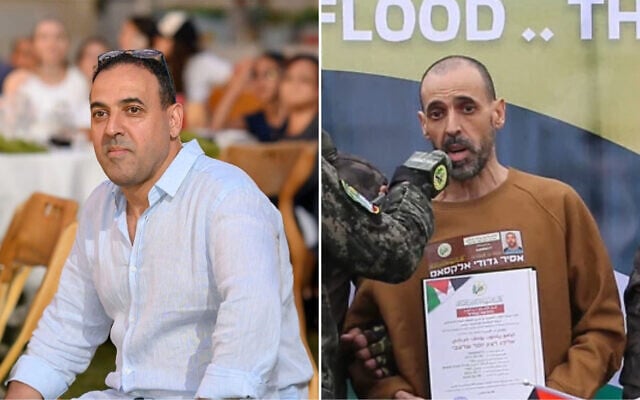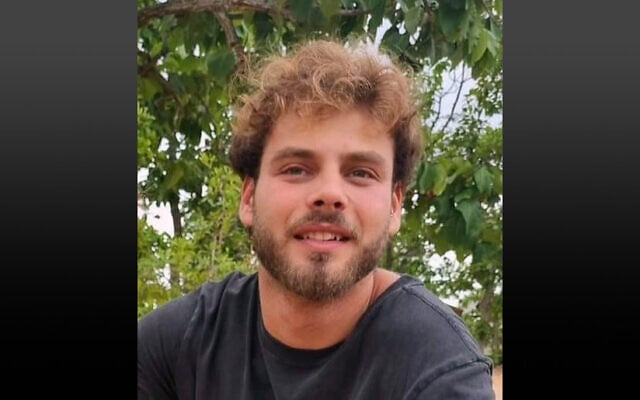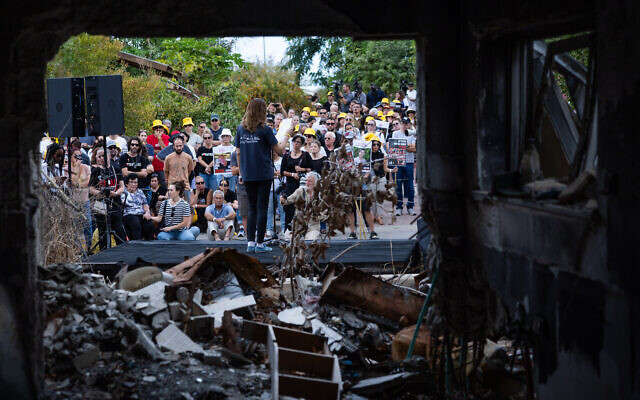


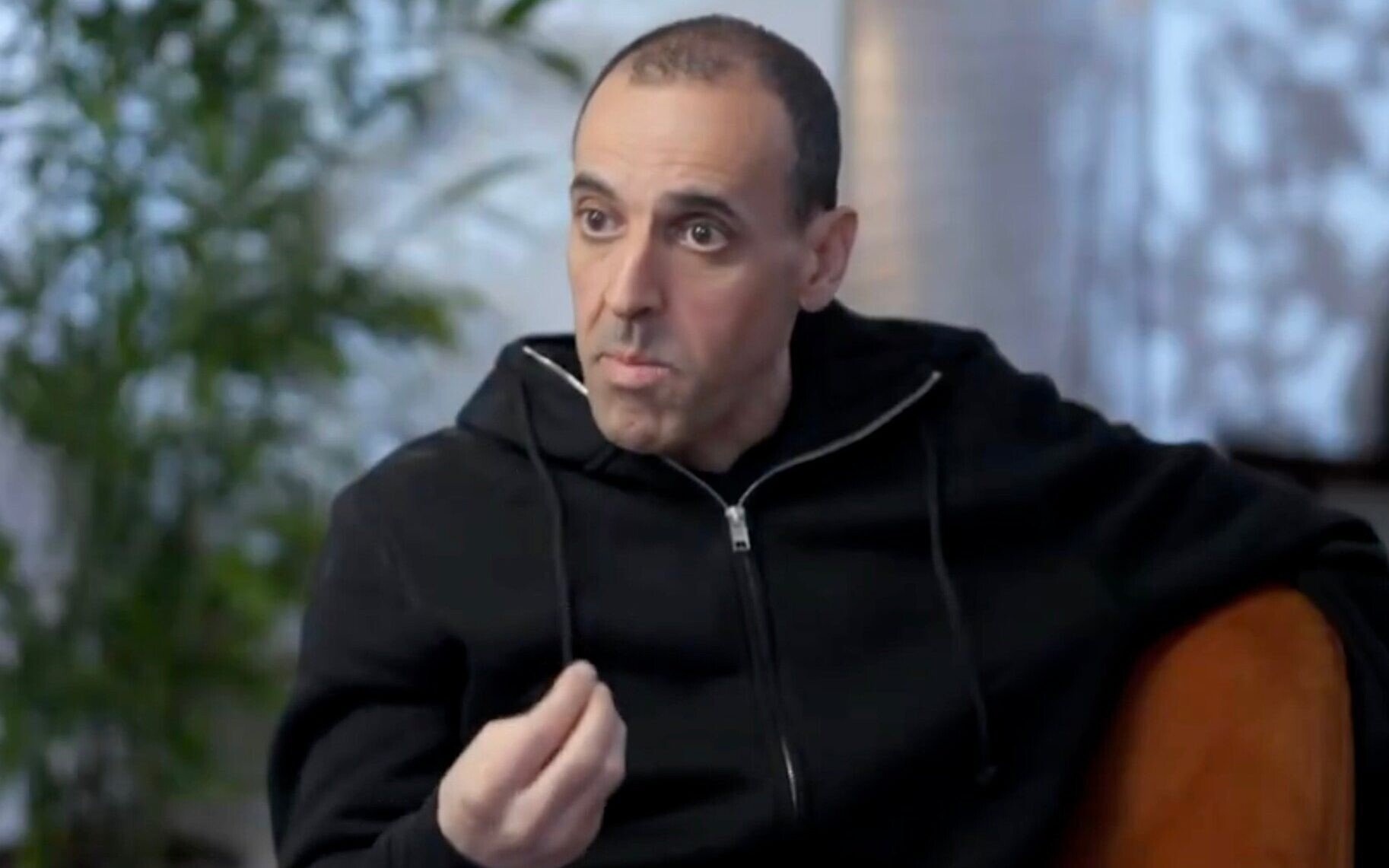
Prime Minister Benjamin Netanyahu apologized Monday to recently released hostage Eli Sharabi for failing to free him sooner from captivity in the Gaza Strip.
Sharabi was finally released earlier this month after 15 months as a hostage of terrorists in the Palestinian enclave.
“I am sorry that it took us so long,” Netanyahu said in a phone conversation, according to a Prime Minister’s Office transcript. “We fought hard to get you out, and your brother and the entire family fought hard too.”
Sharabi, 53, is expected to meet Donald Trump this week after the US president saw an interview in which the freed hostage described having been chained, beaten and starved by his captors.
Netanyahu told the Kibbutz Be’eri resident that he “greatly appreciates the courageous way you are telling about what you have been through, and it is also very important that you tell President Trump.”
Sharabi stressed the importance of bringing all the hostages home, including the slain. The body of Sharabi’s brother Yossi is still being held in Gaza. Eli Sharabi’s wife and two daughters were murdered on October 7.
“Thank you for all the efforts you are making in this direction,” Sharabi said, promising that he and his brother Sharon will do what they can to advance the cause with Trump.
“Perhaps with joint efforts, we will bring this whole saga to an end,” he said.
“That is the goal,” responded Netanyahu, “and I want you to know that we are not letting up on it for a moment, even in these moments that I am speaking to you.”
Sharabi’s sister Osnat told the Ynet outlet that Eli was looking forward to meeting the US president.
“Eli is very surprised at all the responses and waves that his testimony made,” she said, speaking of the horrors he revealed during the interview.
Sharabi is being joined on the trip to the US by other released hostages — Doron Steinbrecher, Keith and Aviva Siegel, Naama Levy, Omer Shem Tov, and Iair Horn.
Osnat Sharabi said her brother has explained that he went public with the details “for the sake of Alon Ohel” a hostage with whom he formed a strong bond while they were held together.
Sharabi was kidnapped from his home in Kibbutz Be’eri on October 7, 2023, when thousands of Hamas-led terrorists stormed southern Israel to kill some 1,200 people and take 251 hostages, sparking the war in Gaza.
He lost 40 percent of his body weight in captivity, and learned upon returning to Israel that his wife Lianne and teenage daughters Noiya and Yahel were murdered in the Hamas onslaught.
After Sharabi was released on February 8, Trump said he and two others freed that day looked “like Holocaust survivors.” Their condition sparked international outcry.
The meeting with Trump apparently came together after subtitled segments of the interview Sharabi gave to an Israeli television program were passed to the US president.
In the interview with Channel 12’s “Uvda” investigative magazine, Eli Sharabi described having been chained, beaten and starved by his captors, with abuse getting worse whenever Israeli leaders touted the worsened prison conditions of captured Hamas operatives.
He recounted close relationships he formed in captivity with now-released Or Levy and Eliya Cohen, with whom he was held for more than a year, and particularly with Alon Ohel, who remains in captivity — as well as a few days he spent with Hersh Goldberg-Polin, Ori Danino and Almog Sarusi, who were later murdered by their captors.
“I adopted him from the first minute,” Sharabi said of 24-year-old Ohel. “24/7 together. I know everything about him and his family.”
Sharabi said the men were able to draw strength from one another. But Ohel took it very hard when he learned that Sharabi and the two others, Or Levy and Eliya Cohen, were being released, the returnee said.
When Sharabi was released with Levy on February 8, Ohel grabbed him and refused to let go until their guard tore him away, he recalled, adding that there were “moments of hysteria” and that it took about 15 minutes to calm him down.
Sharabi said at the time he was giving the in-depth interview for the sake of those still captive, to ensure they come home — particularly Ohel. “We cannot leave anyone behind,” he said.
“It was a very difficult moment,” he said. “He said he was happy for me. I promised him I wouldn’t leave him there. I will fight for him.” Cohen was released two weeks later, leaving Ohel alone.
A three-stage ceasefire agreement reached last month halted some 15 months of fighting triggered by the group’s October 7, 2023, invasion of Israel, when Hamas-led terrorists killed some 1,200 people and took 251 hostages.
The deal requires Hamas to release all its hostages, Israel to release thousands of Palestinian security prisoners — including hundreds serving life sentences — and a halt to fighting in the Strip, followed by negotiations for a “sustainable calm” and IDF withdrawal from the enclave.
Sharabi was released during the first phase of the deal , which has now stalled with dozens of hostages still in Gaza.
Terror groups in the Gaza Strip are holding 59 hostages, including 58 of the 251 abducted by Hamas-led terrorists on October 7, 2023. They include the bodies of at least 35 confirmed dead by the IDF.
Hamas has so far released 30 hostages — 20 Israeli civilians, five soldiers, and five Thai nationals — and the bodies of eight slain Israeli captives during a ceasefire that began in January.
The terror group freed 105 civilians during a weeklong truce in late November 2023, and four hostages were released before that in the early weeks of the war.
Eight hostages have been rescued from captivity by troops alive, and the bodies of 41 have also been recovered, including three mistakenly killed by the Israeli military as they tried to escape their captors, and the body of a soldier who was killed in 2014.
The body of another soldier killed in 2014 is still being held by Hamas, and is counted among the 59 hostages.

